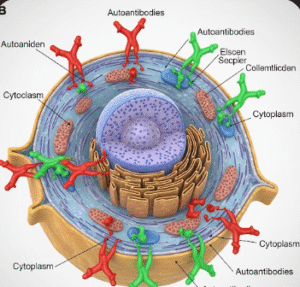Overview
Uterine Factor Infertility is a type of female infertility that arises from anatomical or functional abnormalities of the uterus, which prevent successful implantation or maintenance of pregnancy. It may involve structural defects, fibroids, adhesions, or absence of the uterus altogether. Early diagnosis and treatment improve the chances of conception, especially with the aid of assisted reproductive technologies.
What is Uterine Factor Infertility
Uterine Factor Infertility refers to infertility caused by abnormalities or dysfunction of the uterus that impair the ability to conceive or carry a pregnancy to term. This can be due to congenital anomalies, acquired conditions like fibroids or polyps, intrauterine adhesions, or surgical absence of the uterus (as in hysterectomy). Uterine factor infertility may be partial (impairing fertility) or absolute (no possibility of carrying a pregnancy without a uterine transplant or surrogate).
Symptoms
While uterine factor infertility may not always present clear symptoms, common signs include:
- Inability to conceive after 12 months of trying (or 6 months if over 35)
- Recurrent miscarriages or pregnancy loss
- Irregular or absent menstrual periods
- Pelvic pain or pressure
- Abnormally heavy menstrual bleeding
- History of uterine surgery or infections
- Known uterine anomalies (e.g., septate uterus)
Causes
Uterine factor infertility can be caused by a variety of congenital or acquired conditions:
Congenital causes:
- Müllerian anomalies (e.g., septate uterus, bicornuate uterus, unicornuate uterus)
- Mayer-Rokitansky-Küster-Hauser (MRKH) syndrome (absent uterus)
Acquired causes:
- Uterine fibroids (leiomyomas)
- Endometrial polyps
- Asherman’s syndrome (intrauterine adhesions)
- Endometritis or chronic uterine infection
- Scarring from surgery or dilation & curettage (D&C)
- Radiation therapy damage
- Hysterectomy or uterine trauma
Risk Factors
- History of uterine surgery or trauma
- Pelvic inflammatory disease (PID)
- Use of intrauterine devices (IUDs) with complications
- Congenital uterine abnormalities
- Multiple miscarriages
- Previous fibroid removal or endometrial ablation
- Tuberculosis of the uterus (rare in developed countries)
- Exposure to DES (diethylstilbestrol) in utero
Complications
If not diagnosed and treated, uterine factor infertility can lead to:
- Repeated implantation failure during assisted reproductive treatments
- Recurrent pregnancy loss
- Ectopic pregnancy in uterine anomalies
- Psychological distress due to infertility
- Need for surrogacy or uterine transplantation in severe cases
- Difficulty accessing appropriate care without specialized evaluation
Prevention
While not all cases can be prevented, several measures may reduce the risk or allow early detection:
- Prompt treatment of uterine infections or fibroids
- Careful monitoring after uterine surgery or D&C
- Regular gynecologic exams and imaging if symptoms are present
- Avoid unnecessary uterine instrumentation
- Genetic counseling for congenital anomalies
- Early fertility assessment for women with known uterine abnormalities
Treatment Options in Korea
South Korea offers cutting-edge diagnostics and fertility treatment for women with uterine factor infertility, using both surgical and assisted reproductive technologies (ART).
- Diagnosis:
- Pelvic ultrasound, 3D ultrasound, or MRI for uterine structure
- Hysteroscopy for direct visualization and treatment of intrauterine problems
- Sonohysterography or hysterosalpingography (HSG) to assess the uterine cavity
- Endometrial biopsy in suspected infections or chronic inflammation
- Treatment options:
- Hysteroscopic surgery to correct septate uterus, remove fibroids or polyps
- Adhesiolysis for Asherman’s syndrome
- Hormonal therapy to restore or prepare the endometrium
- In vitro fertilization (IVF) if structural problems persist
- Gestational surrogacy for absolute uterine factor infertility (e.g., MRKH or post-hysterectomy)
- Experimental uterine transplantation (under research in select cases)
Korean reproductive centers are equipped with advanced fertility labs, experienced reproductive surgeons, and minimally invasive techniques to optimize outcomes for women facing uterine-related infertility.













